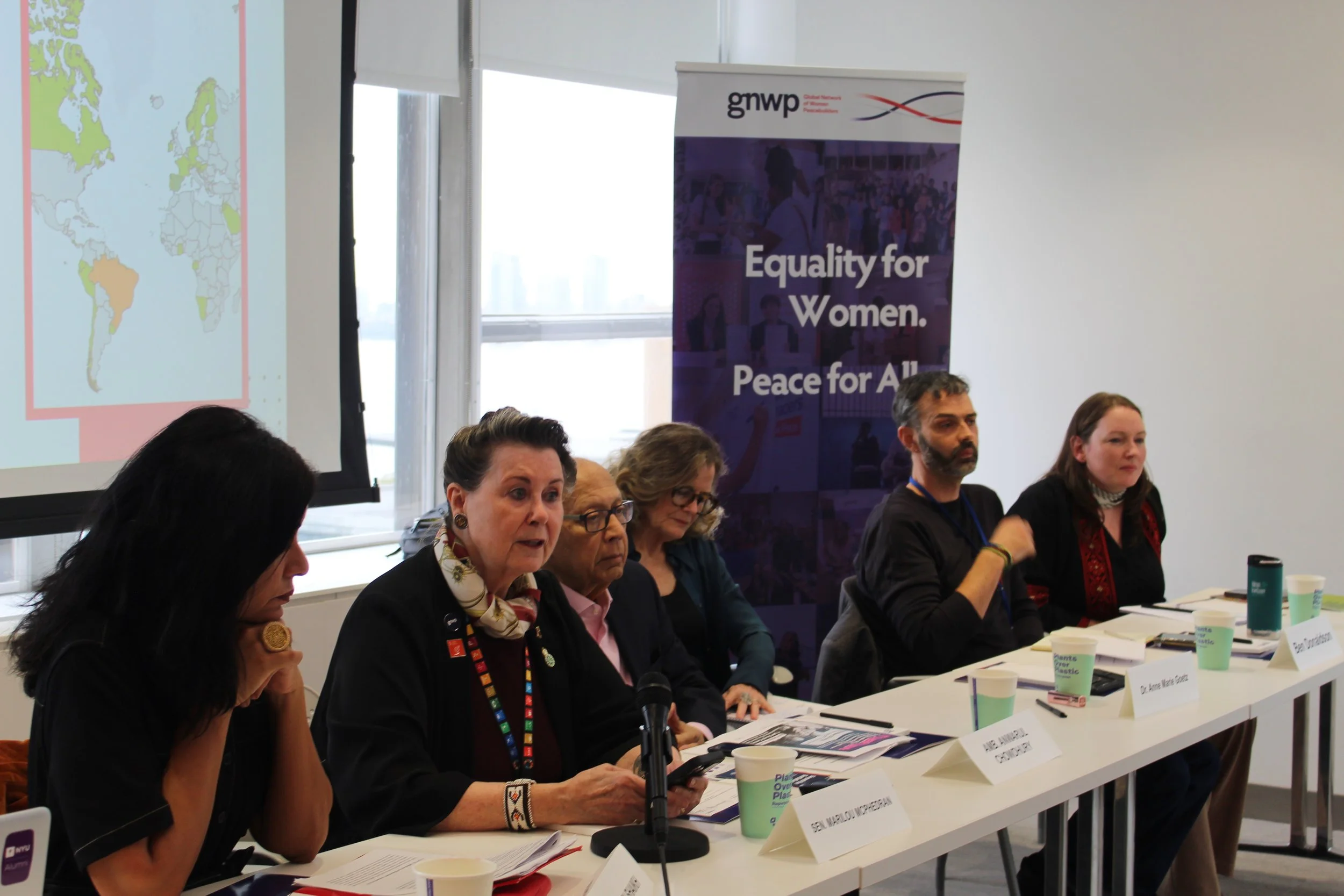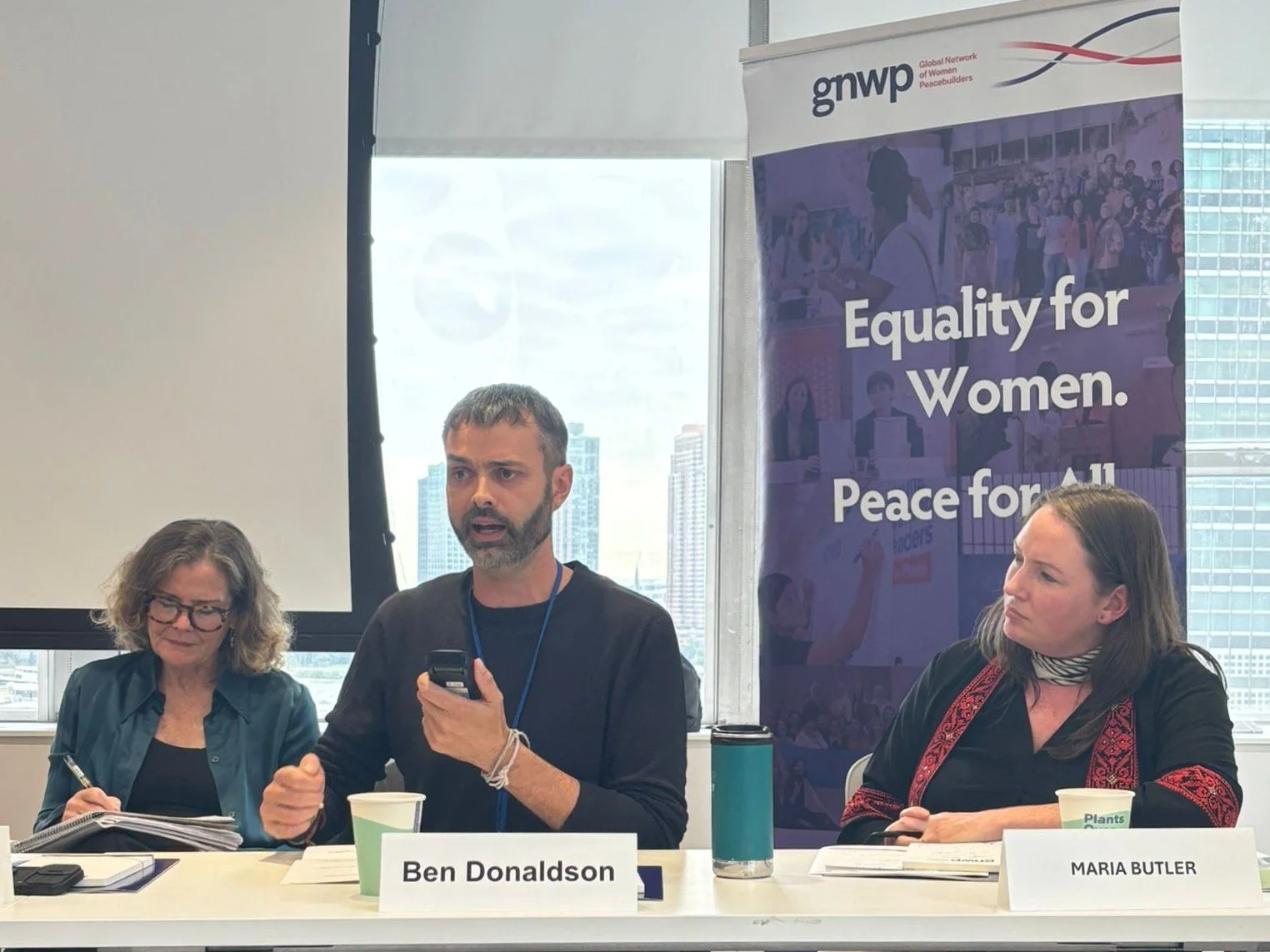As world leaders gathered in New York for the UN’s annual High Level Week, 1 for 8 Billion held a side event in partnership with the Global Network of Women Peacebuilders (GNWP), the Center for Global Affairs, School of Professional Studies, New York University (NYU CGA), the Nobel Women’s Initiative and the Global Movement for the Culture of Peace.
Entitled “It’s HER turn”, the event explored the long overdue need for a feminist woman Secretary-General and marked the launch of updated research tracking member states’ commitments on this matter. Presented by lead researcher Claudette Segura of GNWP, the headline findings reveal that: 92 states have signalled their strong support for a woman SG with 28 of those going further by announcing concrete measures to further this objective. A further 88 states have shown “indirect or implied” support for a woman SG, 12 states have not mentioned the issue and one state (Russia) has spoken out against gender being a relevant criteria in the selection.
A full readout of the research including a map of support is available here.
The event was opened by Marilou McPhedran - Canadian Senator and Founding Board Member of GNWP - who highlighted the precarious position the UN is in, facing both financial and moral crises in its capacity to deliver on its mission. Selecting its next leader will test whether States can rise to the moment with courage.
Representing 1 for 8 Billion, Ben Donaldson explained that there were symbolic and substantive reasons to appoint a feminist woman as the next Secretary-General, but also a pragmatic case:
“The UN is short on legitimacy, it’s hemorrhaging credibility, it has no money…the next SG will need to squeeze every last bit of normative power the UN has to offer in order to rise to the challenges ahead; this simply would not be possible if the UN continues to be seen as an 80 year old beacon of inequality”.
Donaldson noted the need for an inclusive, transparent and accountable process that allows civil society scrutiny of the states and candidates involved. He highlighted the crucial role that civil society can play outside of the formal process, including the opportunities for NGOs to platform candidates and find out “how they intend to tackle the severe backslide on women’s rights, how they will approach the UN80 cuts already disproportionately affecting women, and what their broader commitment to multilateralism and human rights looks like”.
During the discussion several themes emerged:
The process must be transparent, participatory, and inclusive, ensuring that the most qualified candidate — one deeply committed to UN values, human rights, and gender equality — is appointed.
After 80 years, it is time. The next UN Secretary-General must be a woman. Anything less undermines the UN’s legitimacy and its promise of equality.
The General Assembly has both the opportunity and the duty to lead on this — giving all member states a meaningful say in the decision
Civil society is indispensable: it strengthens legitimacy and contributes to the process’s accountability and the mandate of the successful candidate
The event was widely attended by parliamentarians, diplomats and civil society leaders, and featured presentations from the academic supervising the research, Anne-Marie Goetz, Clinical Professor at NYU’s Center for Global Affairs. Other speakers included Maria Butler, Executive Director of the Nobel Women’s Initiative, and Ambassador Anwarul Chowdhury, Founder, Global Movement for the Culture of Peace. The event was moderated by Nermeen Shaikh, journalist & co-host of Democracy Now!
Read more:
Read 1 for 8 Billion’s policy platform
Explore the state mapping research
Read the key takeaways from our High-level UNGA event
Banner image: Senator Marilou McPhedran chairs the event. Credit: GNWP.
Image 1: Ben Donaldson speaks on the panel. Credit: 1 for 8 Billion.


